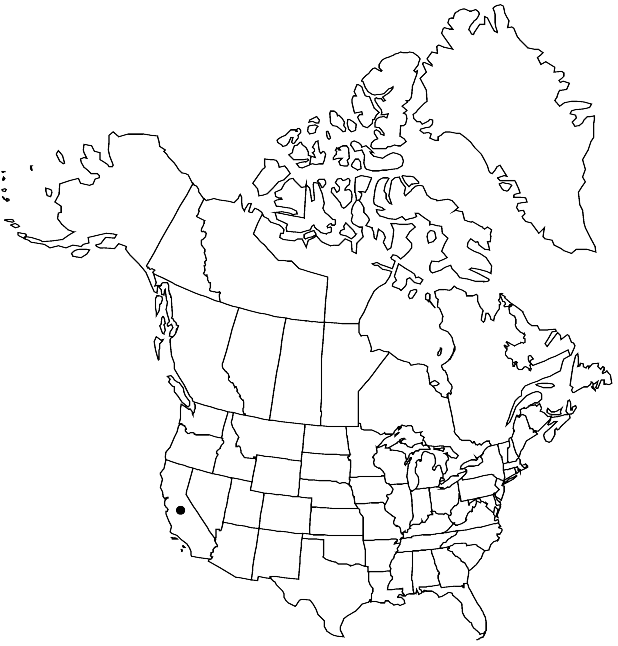Caulanthus heterophyllus
Ann. Missouri Bot. Gard. 9: 298. 1923.
Annuals; hispid basally, glabrous or subglabrate distally. Stems erect, usually branched distally, 2.5–12 dm, hispid. Basal leaves weakly rosulate; petiole 0.3–3 cm; blade linear-oblanceolate to linear-oblong, 0.7–7 cm × 2–18 mm, margins coarsely dentate or pinnately lobed. Cauline leaves (median) sessile; blade linear-lanceolate, 5–16 cm × 5–40 mm, (smaller distally, base amplexicaul to sagittate), margins dentate or (distalmost) entire. Racemes (densely flowered), without a terminal cluster of sterile flowers. Fruiting pedicels reflexed, 2–8 mm, glabrous or hispid. Flowers: sepals erect (purple or yellow to creamy white), lanceolate, 3–8 × 1–1.8 mm (equal); petals purple or yellowish (often with darker purple veins), 5–15 mm, blade 2–6 × 1–1.5 mm, not crisped, claw narrowly oblanceolate or oblong, 3–9 × 1–1.5 mm; filaments tetradynamous, median pairs 3–6 mm, lateral pair 2–5 mm; anthers oblong, equal, 1–3 mm. Fruits reflexed (often straight, rarely curved), latiseptate or 4-angled, 4.5–10 cm × 1–1.5 mm; valves each with prominent midvein; ovules 56–82 per ovary; style 0.5–3.5mm; stigma slightly 2-lobed. Seeds 1.2–2 × 0.9–1.4 mm. 2n = 28.
Phenology: Flowering Mar–May.
Habitat: Coastal scrub, chaparral, rocky areas
Elevation: 0-1400 m
Distribution

Calif., Mexico (Baja California).
Discussion
Caulanthus heterophyllus is a common species distributed from Santa Barbara County southward into northwestern Baja California, Mexico.
R. E. Buck (1993) divided the species into two varieties, including one invalidly published, based on flower color, but these are treated here as mere color variants.
Selected References
None.